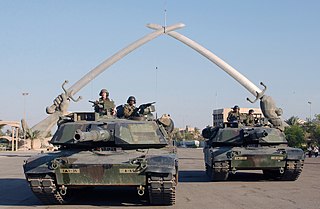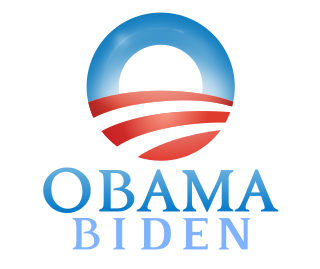
The United States public's opinion on the invasion of Iraq has changed significantly since the years preceding the incursion. For various reasons, mostly related to the unexpected consequences of the invasion, as well as misinformation provided by US authorities, the US public's perspective on its government's choice to initiate an offensive is increasingly negative. Before the invasion in March 2003, polls showed 47–60% of the US public supported an invasion, dependent on U.N. approval. According to the same poll retaken in April 2007, 58% of the participants stated that the initial attack was a mistake. In May 2007, the New York Times and CBS News released similar results of a poll in which 61% of participants believed the U.S. "should have stayed out" of Iraq.
An opinion poll, often simply referred to as a survey or a poll, is a human research survey of public opinion from a particular sample. Opinion polls are usually designed to represent the opinions of a population by conducting a series of questions and then extrapolating generalities in ratio or within confidence intervals. A person who conducts polls is referred to as a pollster.

The 2008 United States presidential election was the 56th quadrennial presidential election, held on Tuesday, November 4, 2008. The Democratic ticket of Barack Obama, the junior senator from Illinois, and Joe Biden, the senior senator from Delaware, defeated the Republican ticket of John McCain, the senior senator from Arizona, and Sarah Palin, the governor of Alaska. Obama became the first African American to be elected to the presidency, as well as being only the third sitting United States senator elected president, joining Warren G. Harding and John F. Kennedy. Meanwhile, this was only the second successful all-senator ticket since the 1960 election and is the only election where both major party nominees were sitting senators. This was the first election since 1952 in which neither the incumbent president nor vice president was on the ballot, as well as the first election since 1928 in which neither ran for the nomination.
Scientific, nationwide public opinion polls conducted relating to the 2008 United States presidential election include:

Gallup, Inc. is an American multinational analytics and advisory company based in Washington, D.C. Founded by George Gallup in 1935, the company became known for its public opinion polls conducted worldwide. Gallup provides analytics and management consulting to organizations globally. In addition the company offers educational consulting, the CliftonStrengths assessment and associated products, and business and management books published by its Gallup Press unit.

Public opinion of same-sex marriage in the United States has significantly changed since the 1990s, and an overwhelming majority of Americans now favor same-sex marriage.
Societal attitudes towards abortion have varied throughout different historical periods and cultures. One manner of assessing such attitudes in the modern era has been to conduct opinion polls to measure levels of public opinion on abortion.
Nationwide public opinion polls conducted relating to the 2008 Republican presidential candidates, typically using standard statistical methodology, include the following. The public was generally sampled by land-line telephone only, and sometimes asked only about their opinion of certain candidates.
This article is a collection of statewide public opinion polls that have been conducted relating to the Super Tuesday Democratic presidential primaries, 2008.

United States President Barack Obama, a member of the Democratic Party, was endorsed or supported by some members of the Republican Party and by some political figures holding conservative views in the 2008 election. Although the vast majority of Obama's support came from liberal constituencies, some conservatives identified in him shared priorities or other positive attributes. As in any election, voters can and sometimes do cross party lines to vote for the other party's nominee. Republican and conservative Obama supporters were often referred to as "Obama Republicans", "Obamacans" or "Obamacons".
The 2008 presidential campaign of Tom Vilsack, former Iowa Governor began on November 30, 2006, the 2nd to officially announce a run. Vilsack had previously been considered as Vice Presidential candidate for Senator John Kerry in the 2004 presidential election. He ran for the Democratic Party's 2008 nomination for President of the United States.

Barack Obama, then junior United States senator from Illinois, announced his candidacy for president of the United States on February 10, 2007, in Springfield, Illinois. After winning a majority of delegates in the Democratic primaries of 2008, on August 23, leading up to the convention, the campaign announced that Senator Joe Biden of Delaware would be the vice presidential nominee. At the 2008 Democratic National Convention on August 27, Barack Obama was formally selected as the Democratic Party nominee for president of the United States in 2008. He was the first African American in history to be nominated on a major party ticket. On November 4, 2008, Obama defeated the Republican nominee, Senator John McCain of Arizona, making him the president-elect and the first African American elected president.

Senator John McCain, the Republican Party nominee, was endorsed or supported by some members of the Democratic Party and by some political figures holding liberal views in the 2008 United States presidential election. McCain Democrat and McCainocrat are terms applied to Democrats who supported McCain.

Barack Obama, who served as the 44th President of the United States, has elicited a number of public perceptions regarding his personality and background. As the first African-American President of the United States, his race and culture played a prominent role, both positively and negatively.
A 47-nation global survey of public opinion conducted in June 2007 by the Pew Global Attitudes Project found considerable opposition to the NATO military operations in Afghanistan. In 2 out of the 47 countries was there a majority that favoured keeping troops in Afghanistan – Israel (59%) and Kenya (60%). On the other hand, in 41 of the 47 countries pluralities wanted NATO troops out of Afghanistan as soon as possible. In 32 out of 47 countries majorities wanted NATO troops out of Afghanistan as soon as possible. Majorities in 7 out of 12 NATO member countries wanted troops withdrawn as soon as possible.
Nationwide public opinion polls conducted with respect to the Republican primaries for the 2012 United States presidential election are as follows. The people named in the polls were either declared candidates, former candidates or received media speculation about their possible candidacy.

Public opinion on nuclear issues is the aggregate of attitudes or beliefs held by the adult population concerning nuclear power, nuclear weapons and uranium mining. Opinions vary very significantly across countries, and have significantly changed over time, with support declining mostly as result of widely publicized nuclear incidents, often presented in a distorted way, where the debate on climate change has boosted support for nuclear power as low-carbon energy source in many countries.
The platform of the Democratic Party of the United States is generally based on modern liberalism, contrasting with the conservatism of the Republican Party. The party generally sits on the center-left of the American political spectrum. Currently, the party has large centrist and progressive wings, as well as smaller fiscal conservative and democratic socialist elements.

Public opinion on gun control in the United States has been tracked by numerous public opinion organizations and newspapers for more than 20 years. There have also been major gun policies that affected American opinion in the 1990s. Throughout these polling years, there are different gun control proposals that show promise for bipartisan action. Over the years listed there have been mass shootings, most notably school shootings, that have affected public opinion. There have also been a growth in states around the United States taking more drastic measures on gun control.
Following were the reactions to the Afghanistan War (2001–2021).










